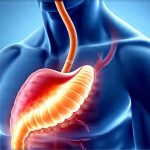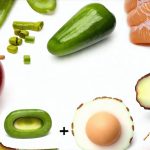Many people experience unpleasant digestive symptoms like bloating, acid reflux, and nausea at various points throughout the day. Often, these issues are linked to hydration – not necessarily how much water we drink, but when and how we hydrate. A seemingly simple act like drinking water can either contribute to or alleviate these problems depending on our patterns. Understanding how our bodies process fluids, and adapting our hydration strategies accordingly, is a powerful step towards better digestive health and overall well-being. It’s not always about chugging eight glasses a day; it’s about mindful hydration tailored to your individual needs and lifestyle.
The key lies in recognizing that the digestive system is incredibly sensitive to fluid balance. Rapidly consuming large amounts of water, especially with meals or first thing in the morning, can sometimes dilute stomach acid, potentially hindering digestion and leading to discomfort. Conversely, chronic dehydration concentrates stomach acid, increasing the risk of heartburn and indigestion. Moreover, different beverages affect us differently – some promote hydration while others can exacerbate digestive issues. This article will delve into practical hydration patterns that minimize bloating, acid reflux, and nausea, empowering you to feel your best throughout the day.
Optimizing Hydration Timing & Volume
The timing of our fluid intake plays a significant role in preventing digestive upset. Many people instinctively reach for a large glass of water first thing in the morning, but this can sometimes overwhelm a relatively empty stomach. Instead, consider starting with smaller sips – perhaps half a glass – and gradually increasing your intake as you begin your day. This allows your body to adjust more comfortably and avoids diluting digestive enzymes unnecessarily. Similarly, drinking excessive amounts of water during meals can hinder digestion; it’s generally better to hydrate slightly before or after eating rather than while consuming food.
The volume of fluids we consume at any given time also matters. Instead of gulping down large quantities, opt for frequent, smaller sips throughout the day. This approach is more easily absorbed by the body and reduces the strain on the digestive system. Think about spreading your water intake evenly – a few ounces every 20-30 minutes can be far more effective than chugging a bottle all at once. Consistent, moderate hydration is often more beneficial than infrequent, large volumes. Remember that individual needs vary based on activity level, climate, and overall health; there’s no one-size-fits-all solution.
Beyond water itself, consider the impact of other beverages. Sugary drinks can contribute to bloating, while caffeinated beverages might exacerbate acid reflux in some individuals. Herbal teas like ginger or chamomile can be soothing for nausea, but it’s vital to listen to your body and identify what works best for you. Ultimately, prioritizing plain water as your primary source of hydration is a solid foundation for digestive health. If morning sickness is an issue, review best food and drink choices to help improve digestion.
Navigating Specific Digestive Issues with Hydration
Addressing bloating requires a nuanced approach beyond simply drinking more or less water. Bloating is often caused by gas build-up in the digestive tract, and hydration plays a role in both contributing to and alleviating this issue. Rapidly consuming carbonated beverages obviously exacerbates bloating, but even plain water can contribute if swallowed quickly, leading to air ingestion. – Slow, mindful sipping is key. – Additionally, staying adequately hydrated helps maintain regular bowel movements, preventing constipation which can also lead to bloating.
Nausea, on the other hand, often benefits from small, frequent sips of clear fluids. Avoid strong flavors or overly sweet beverages that might further irritate the stomach. Ginger ale (containing real ginger) or peppermint tea are traditional remedies for nausea, but again, moderation is crucial. If nausea is severe or persistent, it’s important to consult a healthcare professional – dehydration from vomiting can quickly become dangerous. – Focus on electrolyte replenishment if experiencing significant fluid loss due to vomiting. It’s also helpful to know what to do when nausea appears randomly throughout the day.
Acid reflux, frequently triggered by dietary choices and lifestyle factors, can be influenced by hydration timing. Drinking water before a meal can help dilute stomach acid, potentially reducing heartburn. However, avoid drinking large amounts of water immediately before lying down, as this increases the risk of acid flowing back up into the esophagus. – Maintaining good posture while hydrating can also minimize reflux symptoms. Many people find that avoiding acidic beverages like citrus juice or tomato juice helps manage their reflux too. For more severe cases, consider low-acid diet plans.
The Role of Electrolytes & Food Sources
Hydration isn’t solely about water; it’s about maintaining a balance of electrolytes, which are essential for proper bodily function and digestive health. Sodium, potassium, magnesium, and calcium all play crucial roles in fluid regulation and nerve transmission. When we sweat or experience fluid loss (through diarrhea or vomiting), we also lose electrolytes. Simply drinking large amounts of water without replenishing these minerals can actually worsen symptoms – a phenomenon known as hyponatremia.
Excellent sources of electrolytes include: – Coconut water, naturally rich in potassium – Bananas, another great source of potassium – Leafy green vegetables, providing magnesium and calcium – Small amounts of sodium-rich foods like pickles or broth (in moderation). Electrolyte drinks can be helpful during periods of intense activity or illness, but it’s important to choose options with low sugar content.
Beyond beverages, many fruits and vegetables have a high water content and contribute significantly to overall hydration. Watermelon, cucumbers, strawberries, and celery are all excellent choices. Incorporating these foods into your diet provides not only fluids but also essential vitamins, minerals, and fiber – supporting digestive health in multiple ways. Prioritizing whole food sources of hydration is often more beneficial than relying solely on liquids. This approach ensures a balanced intake of nutrients alongside fluid replenishment. If you experience nausea that comes and goes, managing nausea can help improve your wellbeing. Also consider the effects of physical inactivity.
The information provided in this article is for general informational purposes only and does not constitute medical advice. It is essential to consult with a qualified healthcare professional for any health concerns or before making any decisions related to your health or treatment.


















